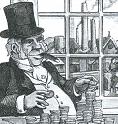|
ITT: people with poo poo careers and shittier budgeting habits, who get real salty when other people escape the rat race and enjoy their lives.
Bob Ross Nuke Test fucked around with this message at 00:45 on Aug 16, 2016 |
|
|
|

|
| # ? May 28, 2024 18:05 |
|
THE BEATWEAVER posted:ITT: people with poo poo careers and shittier budgeting habits, who get real salty when other people escape the rat race and enjoy their lives. If you were projecting any more I'd buy skittles and popcorn.
|
|
|
|
tagesschau posted:So you're saying that Powershift underestimated the gains in house prices, because I didn't overestimate the gains in the stock market. (In fact, since my figures above were in USD, I underestimated the gains; C$280,000 invested in the S&P 500 on August 12, 2009, would become C$723,699 by August 12, 2016. Eyeballing the REBGV's house price chart indicates that the stock market outperformed Vancouver detached housing by about 23% over seven-year period ending in January 2016.) I'm not sure exactly what you think I'm arguing here, but if it's anything beyond 'people who bought before the peak of a massive bubble with substantial leverage made a lot of money' you're probably wrong. I assure you that I understand the long-term historical trends for both the stock and housing markets, the carrying costs associated with owning a home, the inability of the typical investor to time markets, and so on. The only point I'm responding to are the cheerleaders saying things like: Dreylad posted:Luck and advantages they had aside, the actual take-away from the article is to smash the myth that real estate is the smartest investment for your savings. Even if you could conclude something from a single data point, this isn't a positive one -- buyers of detached homes in a similar situation in either Vancouver or Toronto who bought in 2009 and sold in 2016 did substantially better than them. And that's fine, and it doesn't undermine any of the conventional wisdom in this thread. Some idiots make money in asset bubbles. That doesn't mean that they are smart or should be emulated. BTW 100% S&P 500 for a Canadian investor is a sufficiently atypical portfolio that it represents a form of market timing/cherry-picking unto itself. Over the same time period the TSX is up less than 40%, and bonds and international equities would also be up substantially less. Something like the 3-fund Canadian Couch Potato portfolio is likely only up 50% or so over the same time frame (didn't actually do the math, so forgive me if I'm off by 20% in one direction or the other here).
|
|
|
|
blah_blah posted:buyers of detached homes in a similar situation in either Vancouver or Toronto who bought in 2009 and sold in 2016 did substantially better than them Except that that's not even the case. Even if you ignore the carrying costs and assume that the entire change in price is profit, you still do better with the S&P 500 portfolio. When you have historically huge price appreciation, and it still doesn't outperform a growth-oriented portfolio, there's no colorable claim to housing being the best investment over the seven years in question, and even less of one in general. blah_blah posted:BTW 100% S&P 500 for a Canadian investor is a sufficiently atypical portfolio that it represents a form of market timing/cherry-picking unto itself. Over the same time period the TSX is up less than 40%, and bonds and international equities would also be up substantially less. Something like the 3-fund Canadian Couch Potato portfolio is likely only up 50% or so over the same time frame (didn't actually do the math, so forgive me if I'm off by 20% in one direction or the other here). A portfolio of representative stocks from the world's largest economy is not an atypical or bizarre investment choice.
|
|
|
|
Throatwarbler posted:I'm having a kid next month. Can someone calculate when I will be able to retire and travel the world tia Just put $20,000 in the bank every month instead of $10,000 and you'll be able to retire in 10 years. easy peasy.
|
|
|
|
tagesschau posted:Except that that's not even the case. Even if you ignore the carrying costs and assume that the entire change in price is profit, you still do better with the S&P 500 portfolio. When you have historically huge price appreciation, and it still doesn't outperform a growth-oriented portfolio, there's no colorable claim to housing being the best investment over the seven years in question, and even less of one in general. You're both right. In 2009, if the people had put their 200k into S&P, they'd be up %150 and sitting with 500k, up 300k. If they'd used the 200k to put 20% down on a 1m detached house in Vancouver, it would have appreciated 120% to 2.2m, they could sell and be happily up 1.2m (minus expenses but I think we can agree that it'd be substantially higher than 300k). The difference is that canadians are soooo happy to leverage their investment when it's in real estate but it's very uncommon for us to leverage ourselves to invest in the stock market so your "average canadian" would have done better putting 20% down on a vancouver house in 2009 than straight investing it into an S&P ETF but it's not really a fair comparison.
|
|
|
|
tagesschau posted:Except that that's not even the case. Even if you ignore the carrying costs and assume that the entire change in price is profit, you still do better with the S&P 500 portfolio. When you have historically huge price appreciation, and it still doesn't outperform a growth-oriented portfolio, there's no colorable claim to housing being the best investment over the seven years in question, and even less of one in general. The relevant factor here is that the government and banks are glad to let your average Joe borrow at anywhere from 5-20x leverage to own a house (and assume most of the risks here). 250k in 2009 could have (at a 'modest' 20% down) bought you a 1.25M house, which would likely be worth nearly 4M today in Vancouver. There is also the nontrivial issue of differing capital gains treatments. tagesschau posted:A portfolio of representative stocks from the world's largest economy is not an atypical or bizarre investment choice. A Canadian investor investing in 100% S&P 500 is not a typical or recommended investment choice. A more typical diversified portfolio has significantly lower returns. If we examine the actual case at hand, the particular portfolios recommended by Garth Turner (who is the financial advisor of the bloggers in question) are roughly 40% bonds (or bond-equivalents) and 60% equities, with only 1/3rd of the equity portion in US large-cap ETFs (see here). This is not a portfolio that would have come even close to keeping up with a 100% S&P 500 portfolio. I really don't understand why you've picked this hill to die on; saying that some small fraction of people who leveraged themselves to the hilt and had perfect once-in-a-lifetime market timing outperformed a much lower-risk strategy doesn't invalidate the general principles of low-cost indexing or the historical fact that equities outperform housing.
|
|
|
|
What advisor in their right mind would tell two high earners in their late 20s to put 40% of their investments in bonds? e: are you calling preferred shares bond equivalents because they're not. Precambrian Video Games fucked around with this message at 03:24 on Aug 16, 2016 |
|
|
|
Eventually my father in law will pass away, and my spouse and I will retire like kings. Should I make a blog about our retirement planning or just get the NatPost to cover us?
|
|
|
|
ocrumsprug posted:or just get the NatPost to cover us? Only if you have a defined benefit pension.
|
|
|
|
blah_blah posted:Only if you have a defined benefit pension. Perhaps we can be the cautionary tale?
|
|
|
|
Considering the number of people who manage to blow an amount of money that would provide a comfortable retirement on stupid poo poo, like an unfortunate percentage of lottery winners, I don't think it's to be so easily dismissed that, "oh, they have plenty of money to begin with, of course they'll be responsible with it and have an easy retirement!" Yeah, it's a gently caress sight easier to be affluent when you start with money, but that doesn't mean it's not easy to gently caress it all up.
|
|
|
|
.
James Baud fucked around with this message at 11:17 on Aug 25, 2018 |
|
|
|
James Baud posted:Watch out, old people like to donate all their money to charity when they think their kids have been circling like vultures for too long! Jokes on him then, he's Japanese and is going to out live me anyways.
|
|
|
ocrumsprug posted:Eventually my father in law will pass away, and my spouse and I will retire like kings. Hey that's my retirement plan too. Dude is one of those "I won't let my kids have any money even though I could have retired in my 40s to teach them WORK ETHIC" types but all it does is make us realize how lovely it is to be poor. No one gets wealthy by working in Vancouver anymore, and he got wealthy by buying a bunch of houses in Kits and Shaughnessy for five figures each. UnfortunateSexFart fucked around with this message at 03:54 on Aug 16, 2016 |
|
|
|
|
apatheticman posted:I tried but excel just laughed at me. Clippy just opened a template for a suicide note and a life insurance claim
|
|
|
|
quote:Vancouver�s real estate tax sparks backlash from Chinese buyers Seems like the tax may be having its intended effect, but Canada is still an ideal place to stash cash compared to everywhere else.
|
|
|
|
Femtosecond posted:Seems like the tax may be having its intended effect, but Canada is still an ideal place to stash cash compared to everywhere else. Someone on Reddit pointed out that this dude appears to somehow have a Realtors license despite having been in the country less than 2 years? And went on to ponder how many people may be illegally working as Realtors in Vancouver. Anyways gently caress that guy, nobody can buy property in China so he can go ride back to the mainland on his river of crocodile tears.
|
|
|
|
eXXon posted:What advisor in their right mind would tell two high earners in their late 20s to put 40% of their investments in bonds? Someone bearish.
|
|
|
|
blah_blah posted:The relevant factor here is that the government and banks are glad to let your average Joe borrow at anywhere from 5-20x leverage to own a house (and assume most of the risks here). 250k in 2009 could have (at a 'modest' 20% down) bought you a 1.25M house, which would likely be worth nearly 4M today in Vancouver. There is also the nontrivial issue of differing capital gains treatments. Seriously this. "Canadian society is structured around the permissiveness of huge leverage towards housing" and "the capital gains are tax free" are so so important, and the value-investor types including myself for most of my adult life tend to overlook these factors consistently. There's also the whole "governments will do virtually anything to keep homeowners happy" thing.
|
|
|
|
eXXon posted:What advisor in their right mind would tell two high earners in their late 20s to put 40% of their investments in bonds? It has nothing to do with age and everything to do with timeline to withdrawal. In this case, the investors had a plan to retire in their early 30s. If the timeline to drawing on the principal is 10 years, then I think a 40% bond allocation is very reasonable, regardless if the investor is 25 or 50.
|
|
|
|
.
|
|
|
|
Femtosecond posted:Seems like the tax may be having its intended effect, but Canada is still an ideal place to stash cash compared to everywhere else. Was the intended effect a lot of  ing? It's definitely way to early to tell whether it's done anything meaningful. We don't even have a full month of sales to go by so far. ing? It's definitely way to early to tell whether it's done anything meaningful. We don't even have a full month of sales to go by so far.
|
|
|
|
quote:Want a BMW? No disposable income? No problem - have a loan anyway http://www.canberratimes.com.au/business/want-a-bmw-no-disposable-income-no-problem--have-a-loan-anyway-20160815-gqswtd.html
|
|
|
|
I hope mortgage brokers don't get paid bonuses.
|
|
|
|
Jumpingmanjim posted:http://www.canberratimes.com.au/business/want-a-bmw-no-disposable-income-no-problem--have-a-loan-anyway-20160815-gqswtd.html this is literally how the us housing crash happened. i guess its less bad on a small scale with cars
|
|
|
Jumpingmanjim posted:I hope mortgage brokers don't get paid bonuses. Fun fact: about five years ago now mortgage brokerage rules in Australia changed so that people who are dumbasses who blame their broker for the fact that they didn't actually read their contracts can actually sue the brokers for not telling them every single tiny little detail in the contract. As soon as it happened my husband was like "lol nope getting out of this business" because people are god damned morons who like to blame their brokers when they don't read the most important contract of their lives.
|
|
|
|
|
THE BEATWEAVER posted:Lol at you insufferable gits, $40k is sufficient to live like loving royalty in most of the world. They can happily retire in Central America or Southeast Asia and enjoy their loving lives in idyllic freedom, instead of working till they die just to savour the sweet delight of freezing and eating cat food as seniors in this shitheap of a nation we call home. As someone living on a student budget in a super rich western nation I can't really comprehend how someone could be suffering off 20k per person.
|
|
|
|
RBC posted:this is literally how the us housing crash happened. i guess its less bad on a small scale with cars John Oliver just did a show on it this week.
|
|
|
|
MiddleOne posted:As someone living on a student budget in a super rich western nation I can't really comprehend how someone could be suffering off 20k per person. Living off 20k per person with a spouse is not difficult and you can maintain a pretty good standard of living.
|
|
|
|
Cute n Popular posted:Living off 20k per person with a spouse is not difficult and you can maintain a pretty good standard of living. That was what I was inferring.
|
|
|
|
Cute n Popular posted:Living off 20k per person with a spouse is not difficult and you can maintain a pretty good standard of living. Especially if you don't have kids. I'm pretty sure my wife and I have way less than 3400 worth of expenses in an average month.
|
|
|
|
Cute n Popular posted:Living off 20k per person with a spouse is not difficult and you can maintain a pretty good standard of living. I'd hardly call $1,600 a month a good standard of living.
|
|
|
|
EvilJoven posted:Especially if you don't have kids. I'm pretty sure my wife and I have way less than 3400 worth of expenses in an average month. There's no comparison, child care alone can easily exceed 20k per year. People spend a lot of time making fun of overleveraged homeowners when the real financial illiterates are people with children. There's a connection between real estate prices and fertility rates, and it's about what you'd expect: http://isites.harvard.edu/fs/docs/icb.topic1121922.files/dettling_kearney_feb2013.pdf quote:Our IV estimates imply that a $10,000 increase in home prices leads to a 5 percent increase in fertility rates among owners My favourite part: quote:Recognizing that housing is a major cost associated with child rearing, and assuming that children are normal goods, we hypothesize that Children are normal goods, albeit with terrible ROI. The results are actually about the worst possible outcome, rising house prices mean terrible people (Canadian homeowners) are more likely to reproduce.
|
|
|
|
There are quite a few people in my social circle, including myself and my wife, who are opting to not have children partially because of the financial and time cost implications of being parents. I'm not about to subject myself to spending all my time and money for the next 20 years raising a kid. EDIT: I'd really like to see how big an impact lengthening work hours and stagnant incomes in general is having on the populations decision to have children. Does anyone know if these numbers are available?
|
|
|
|
Nocturtle posted:terrible people (Canadian homeowners) 
|
|
|
|
PK loving SUBBAN posted:I'd hardly call $1,600 a month a good standard of living. Adjust your QOL expectations then, you entitled consumerist twat. That's over a thousand more a month than about 5 billion other humans subsist on.
|
|
|
|
THE BEATWEAVER posted:Adjust your QOL expectations then, you entitled consumerist twat. That's over a thousand more a month than about 5 billion other humans subsist on. Yeah but we're talking about Canada here. This is the CanDebt thread.
|
|
|
|
PK loving SUBBAN posted:Yeah but we're talking about Canada here. This is the CanDebt thread. We got in this topic by shaming some peeps who had the financial acuity to acquire a fat stack of cash, which generates enough interest to comfortably live anywhere except this frozen bastion of exorbitant living costs. And now some neauveau-riche golf club goons keep insisting $40k per annum is dire poverty or some poo poo. 
|
|
|
|

|
| # ? May 28, 2024 18:05 |
|
Smack dab on the front page of CBC news, another real tragic story: http://www.cbc.ca/news/canada/british-columbia/property-transfer-tax-chinese-student-1.3719106 quote:After completing her degree at the University of Saskatchewan last spring, Chinese student Jing Li decided to put down permanent roots in Canada. She never would have bought the property if she had known about the tax. But being here on a work visa? Go freakin nuts. No risks there at all.
|
|
|

































